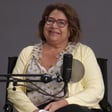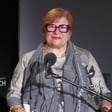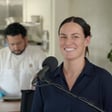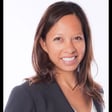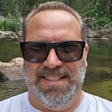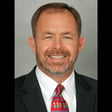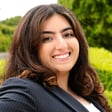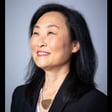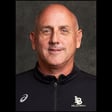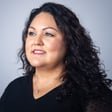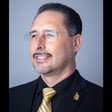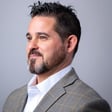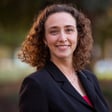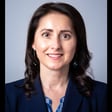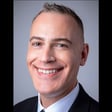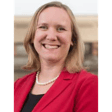Become a Creator today!Start creating today - Share your story with the world!
Start for free
00:00:00
00:00:01

S1 - E8: The Chairman of The Board (part 2)
Kenneth W. Miller ('69, '71) discusses the 49er Foundation Board and his alma mater.
Transcript
Introduction and Guest Overview
00:00:00
Speaker
Welcome, I'm Dan Montoya, Vice President for University Relations and Development at Cal State Long Beach, and this is our podcast, At the Beach. This is part two of the discussion with our chair of the 49er Foundation Board, Ken Miller, who is a double alumnus and member of the College of Business faculty. If you haven't listened to part one yet, I encourage you to do so. In the meantime, sit back, listen, and enjoy part two of my chat with Ken. I know you will find it very fascinating.
Pride in Long Beach State and Alumni Achievements
00:00:47
Speaker
Let's talk a little bit more about you and the role of alumni. You are so involved and
00:00:58
Speaker
Talk to us a little bit about why and the experience as an alumni and what that has meant to you over the years. And I know you're such a huge sports fan. So when you come to the games and you have this pride, like the beach obviously is a special place for you. The beach is a special place. And I'll tell you kind of a personal story how this all started.
00:01:23
Speaker
When I started at Xerox as a younger man, people would always ask you, so where did you graduate? Where'd you go to school? And my answer was always the same. I went to the Harvard or the West Coast. And they would laugh like you just did. Yeah, that's great. And they would go, Stanford? I go, Long Beach State, what are you talking about? And they could laugh, but to me, it meant something. And then as my career progressed,
00:01:53
Speaker
it became more meaningful because people that worked for me were from the SC, UCLA, Pepperdine, Loyola, and so forth. They all worked for me. Right. And so we have nothing to give, you know,
00:02:09
Speaker
to, I'm not sure what the right word is, but nothing to apologize for in terms of the quality of the education that we got and the experience that we have. So I'm a very proud alumnus from that point of view. And then in terms of the university today, I mean, there's so many things to be proud of. The list of how good we are
00:02:30
Speaker
is off the charts. We're number five in the country in terms of applications of all the universities in the country. We're consistently in the top five. There's a reason why people want to come here. And one of them is the
00:02:46
Speaker
The result of why they come here is that we're somewhere between number one and number three, most recently number one, in social mobility.
Athletic and Academic Successes
00:02:54
Speaker
Meaning by the time they get out, from the time they entered the university to the time they get out in some years afterwards, their financial viability has increased so significantly. And that's a source of pride for all of us. We're changing lives in a very meaningful way where if they hadn't come here, if they hadn't had the benefit of all of that,
00:03:15
Speaker
it might have been significantly different. Money Magazine rates us as one of the best colleges in America. We're in the top 10% in the country for a return on investment from Georgetown University. We had the most successful athletic program in the Big West. Not just on the field, but in the classroom as well. Our grade point average significantly beats other competitive universities in our system by a lot.
00:03:40
Speaker
We have the number one volleyball team in the country. And I see you at the games and other people, and it's amazing. We have our golf team just won the Big West. Our women's volleyball team is outstanding. Our softball team is great. Our track and field team, one of our coaches is an Olympic coach. There's so many things that we can point to. It's hard not to get excited about what's going on.
00:04:11
Speaker
The more people know about the university, the more excited that they'll be.
Engagement and Community Support
00:04:16
Speaker
They just have to get involved. They have to come. One of the things I was talking to somebody the other day, and I said, as I enter my role and begin to do more outreach with this,
00:04:30
Speaker
to invite people to come to their university. Because it really is. It belongs to the people of the state of California. Absolutely. And to come and see what's going on here. And when people come here, they appreciate a lot more what we're doing here every day. Because what we're doing here is significant, and it's important, and we're making a difference. Yeah, I couldn't agree with you more. And we did an alumni survey. The thing that was so impressive about that is,
00:04:59
Speaker
People have pride for this institution. It's just amazing. And you have so many friends that you have made throughout the years who are still here, and fraternity brothers, and so many folks that have had that pride. And so what is it? Because as an alum, as a community member, you've lived here many, many years. What is that pride? Can you describe that pride a little bit?
00:05:29
Speaker
The pride is, I think, if we look at it from the outside in, the outside in is, what's the result of what we do here? We've used the term a couple of times, changing lives. So the university, if you think about somebody going to the university versus somebody not going to the university,
00:05:53
Speaker
When they're done here, their financial viability is significantly greater, means their ability to pay taxes to the state of California is significantly greater and to the federal government. Their ability to, they'll use the same resources or more, but their ability to actually pay back some of that is significantly greater. Their ability to be better citizens, better voters,
00:06:20
Speaker
is significantly impacted, their ability to have the opportunity of building a family and a tradition for themselves that will use the word legacy, to build a legacy of their own. This is what we do all the time here at the university. And the pride really comes from the fact that what we're doing here is real, it's important, and people's lives will be altered significantly
00:06:48
Speaker
as a result of what we do here every day.
Economic Impact and Contributions
00:06:51
Speaker
And everybody who is on the staff, everybody who teaches, everybody who supports the university should take some semblance of that pride with them because we're making a difference. The impact that we have on the state of California, for example, just our alumni loans is like $8 billion every year. That's an unbelievable, that's just our university.
00:07:14
Speaker
So pride comes from, as I look at that, what's the impact? I think there are three great questions in life and I teach this to my students. What impact are you making? What reputation do you choose for yourself and what legacy will you leave? And the impact that we're making
00:07:30
Speaker
is very real and very important. And I guess I would ask the question, what would happen to these students if higher education, and specifically Cal State Long Beach word here, what would happen to them? And the answer isn't great. So there's so many things that we can point to, but impact is probably the word I would settle on.
00:07:59
Speaker
Yeah, and to some of those, you know, comments you made, you know, as far as making an impact, truly you are making an impact in so many different ways, right? And your reputation is amazing, right? You know, the people that I've been around and anybody that mentions your name is like, yeah, he's an amazing person. And so the third one, legacy, what do you want your legacy to be? Yeah, so actually I do a presentation with my,
00:08:28
Speaker
students where I have them build a personal legacy. And it's the first time they've really thought about that question. They write out a legacy statement.
00:08:39
Speaker
And I couch it in these terms is that I want you to have a roadmap for your life. And the roadmap is picture yourself down the road. What do you want people to say about you? And so it starts off with, I will make it my life's work to be known as a person who, and then they fill it in. And the simplest answer to your question, what do I want my legacy to be?
00:09:05
Speaker
is I want my legacy, and it's the name of my company, and it's the word I used, and I just used it a second ago, who made an impact. And made an impact with my children and my family, made an impact with my friends, made an impact in the students that I have, made an impact on the university.
00:09:27
Speaker
made an impact on a larger scale. I'm in seven other, I've been in seven other philanthropic organizations where I've served on the board. And so I want to share the good fortune that, you know, having had an education here, I was the first in my generation, first gen, a member of the first gen from my family to have an education. That's amazing. So the difference that made with me is amazing.
00:09:54
Speaker
And I owe a lot of that to this place. So the legacy is being built and I keep, what I tell my students is once you've completed that legacy statement, read it every day and then just do one thing that day to execute your legacy, to do one thing that makes a difference in that
Philanthropy and Legacy
00:10:17
Speaker
day. And by the end of the year, you'll have almost 400 different things that you've done.
00:10:22
Speaker
that puts you on the road to really making a difference in who you are. And so legacy is a big word. It's a huge word, and I love it. That's awesome. And yeah, you're so right. I think for me,
00:10:36
Speaker
My motto or legacy statement has always been to help people learn, grow, and advance. And that is why I'm here. And it's obvious this is why you're here, too, as well. And so it's such an honor to serve alongside you and just work with you, Ken. I feel the same, Dan.
00:10:54
Speaker
You're just a great example of what higher education can do, how it can continue to benefit the institution, but more importantly, the ripple effect that you have across your community. And I think that's amazing. So before we close it up, is there any closing thoughts you would like to add or share with the audience?
00:11:17
Speaker
Yeah, I guess to those that are listening that whether you're an alum of the university or a friend of the university or interested in the university in any regard, the question I
00:11:35
Speaker
I think I need to get across, since the financial solvency of our university is so crucial, is what's the message I'd like to give to those people?
Call to Action for Alumni Support
00:11:49
Speaker
And so I like breaking this down in two different respects. The first is sort of giving them something that they don't know. And what I mean by that is that when I was here some years ago, the state paid for virtually
00:12:05
Speaker
the most significant part of my education out of state funds. And as a result of that, tuition was exceptionally low. And so people who probably couldn't have thought of college had great opportunities to do that. Well, over the years, that's changed markedly. And so now the state pays for some of the expenses. And those other expenses that they're not covering
00:12:33
Speaker
and a significantly smaller share, those other expenses have to be borne by tuition, which the students carry, and raising funds like your team and the foundation are responsible for accumulating. So the first thing is just to let people know it's not the same as it was when we went to school. We got the benefit of that. People that went before us had the wisdom of deciding that California was going to compete.
00:13:02
Speaker
because of education and made it a competitive advantage for our state. And it's one of the reasons why California is what, the sixth greatest economy in the world? One of the reasons why that's the case. The second thing I like to have them think about is I really believe that most people want to make a difference in their lives. They want to do something that
00:13:28
Speaker
really spoke to why they existed on this mortal coil. And so the things that I talked to them about is, if you want to make a difference, one of the places where you can absolutely make a difference is ensuring the future. Like, we got the advantage of that, ensuring the future for others who are going to bear a larger burden financially than we bore. So personally, what I do, and this is getting very personal, is that I have decided that I'm going to
00:13:58
Speaker
take 10% of my estate and it's going to go to philanthropic causes, leaving 90% for the rest of my family. They're fine with 90%. 90% is fine. But the 10% is going to go primarily for education and primarily to Long Beach State. And what I found in doing philanthropic work over the years, people want to give. They don't know, A, what to give or how to give.
00:14:28
Speaker
And so I just found that a real easy way of saying, pick a number. It doesn't matter what the number is, pick a number, a percentage of your state and say, I'm willing to give this for people that help me get to where I am. Cal State Long Beach helped me get to where I am. They're going to get the benefit of what I've saved.
00:14:47
Speaker
And it's going to be something that will be meaningful. And I do that without reservations. And I also want to be a model for my sons so that they can see what their dad is doing. And they become model citizens. And they do the same thing when it's their turn.
00:15:03
Speaker
That's great. Again, thank you for not just your support, but for helping us ensure that philanthropy plays a huge part. The majority of our budgets we receive from the state now is diminishing every year, so we have to continue to raise the funds so that our students can be successful.
00:15:25
Speaker
Before we leave, let's give a call to action. Let's say, hey, if you're listening out there and you're interested in the 49er Foundation Board, come join us if you're interested in getting involved in the university in some way, shape, or form. There's so many opportunities to get involved here and so many ways to impact students. We have over 39,000 students, and they're always looking for mentors.
00:15:53
Speaker
ways that we can engage them. And if you have a profession that you would love to talk to students about where they want to hear, I think one of the successes, one of the processes of success with students is when they see people like them succeeding, they get inspired and they continue to move forward. Any other call to actions that I missed? Yeah, just come back to the beach. If you haven't been here in a while, just come and see what's going on. If you want to get more involved,
00:16:24
Speaker
come and join a committee or an advisory council or be a mentor to one of our students if you really just want to make it such that you don't have the inclination to do that but you want to do something meaningful.
00:16:42
Speaker
Get your checkbook out and make something meaningful happen as a result. Pick an area where you think the future of the country, the future of the state, or the future of the area will be better off as a result of an investment in that and make an investment in that area. But by all means, we invite you back to come to the beach. It's a really fun place. It's a great place. We're doing great work here. And one of the reasons why we're as great as we are is because of the near 400,000 alumni that we have out there.
00:17:12
Speaker
And so a call out to all of you. It's great to be part of your family and just come and join us and be a part of the great work we're doing here. You're right. I agree. When I came here, I got really embraced and welcome to a family of amazing people and community, alumni, faculty, staff, students. It's been an amazing journey.
00:17:37
Speaker
Well, Ken, I want to thank you for today, and I'm so grateful for your support. I'm so grateful for your involvement. I'm grateful for your leadership, for your vision, and most importantly, for your friendship. So thank you so much. And for Cal State Long Beach and its Division of University Relations and Development, I'm Dan Montoya, and we're going to leave you with a Go Beach on three. One, two, three. Go Beach.
